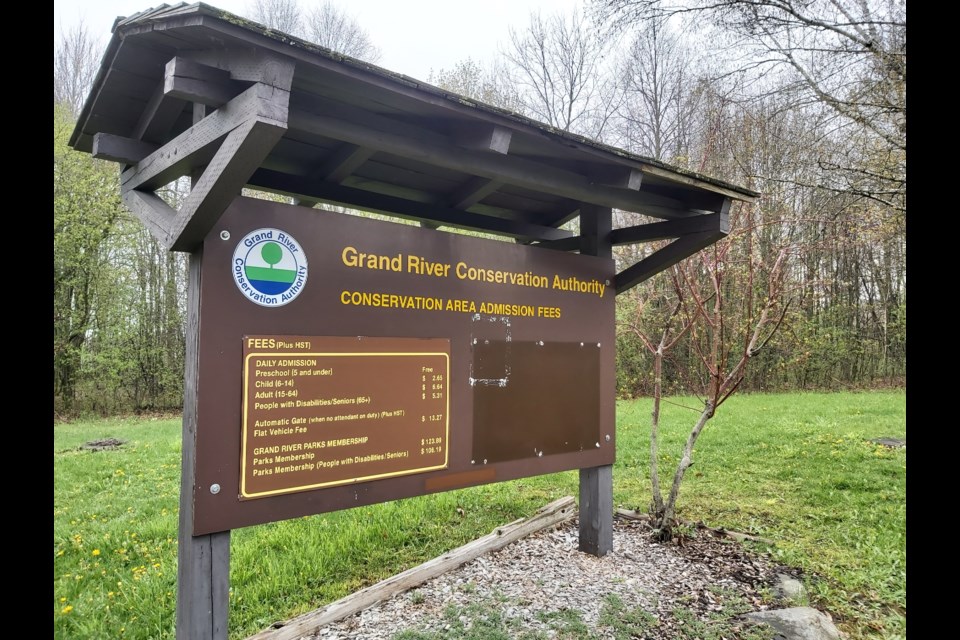At the end of October, the provincial government introduced Bill 23, the More Homes Built Faster Act, which if passed, aims to rapidly expand housing construction to address the housing crisis.
In support of the proposed legislation are changes to the way wetlands are classified in Ontario – changes some say will weaken protection for wetlands and put people at risk.
“What they're proposing here is a change in the way the provincial wetland designation system works,” said Guelph MPP and provincial Green Party leader Mike Schreiner. “More wetlands will be classified as not provincially significant, which would then weaken the protections for those wetlands, and open the door to development of those wetlands. That poses significant risks to communities across the province, including Guelph.”
Those risks, he said, include greater chances of flooding and "threaten the ability of maintaining cleanliness of our water systems," since wetlands naturally filter water.
Currently, the Ontario Wetland Evaluation System, administered by the Ministry of Natural Resources and Forestry (MNRF), determines which wetlands are considered “provincially significant” based on a number of criteria, including how many at-risk species live there, how large or pristine the wetland is, and how much recreational activity occurs there.
Those deemed provincially significant are considered to be the most valuable, and therefore receive the most protection, falling under provincial jurisdiction.
These areas are typically only developed if it can be demonstrated that there will be no negative impact on the ecological function of the wetland, meaning it’s more difficult to develop a provincially-significant wetland area than a locally-significant one under municipal jurisdiction.
“We've already paved over 75 per cent of our wetlands in southern Ontario,” Schreiner said. “And if the government is going to weaken the definition of provincially-significant wetlands, which will then weaken protection for those wetlands, it means that they're opening the door for more development and loss.”
The majority of wetlands in Guelph are currently deemed provincially significant, and some would likely come under review under the proposed legislation, according to retired hydrologist and University of Guelph professor Hugh Whitely.
Whitely said we haven’t lost many wetland areas to development in recent years, a big reason being the provincial designation.
However, he’s confident the areas won’t be developed, regardless of the designation, simply because it’s not economical to do so.
“There's a major economic argument that isn't being made. This is very expensive land to develop. And the major housing problem at the moment is that housing is priced beyond half of the population's ability to secure it,” he said.
Somewhere along the line, he said policy makers will learn that they “have to develop a housing policy that densifies existing areas that already have streets and sewers and water supply, because those are the places we can build affordable housing,” he said.
But, he said, “it’s still a very poor policy, not to recognize the importance of natural areas.”
Schreiner agreed, and said that while "we absolutely need more housing, Bill 23 is not the way to do it, because it puts people's livelihood and property at significant risk.”
“There are just much more fiscally responsible, environmentally responsible and lower cost ways to address our housing crisis than what the Ford government is proposing.”
However, MNRF press secretary Melissa Candelaria said in an email that “the proposed update does not decrease current protections for species at risk of their habitat. Species listed as endangered or threatened and their habitats will continue to be protected under Ontario’s Endangered Species Act, 2007.”
In fact, she said the proposed changes will enhance “existing wetlands and (create) new ones. This would result in a net positive impact on wetlands and helps reverse the decades-long trend of wetland loss in Ontario.”
But not everyone is convinced.
In a recent report, the Grand River Conservation Authority (GRCA) raised several concerns regarding the proposed legislation, namely that it is ambiguous and would remove entire sections from the manual.
One of the proposed changes includes the removal of complexing.
Currently, certain areas like bogs and marshes are considered collectively as wetland complexes. The new legislation would consider them in isolation, meaning that many of them would no longer qualify as protected wetlands.
This change, the report states, “is problematic and will lead to a less standardized approach to wetland evaluation,” and will “impact the status of numerous wetlands across the Grand River watershed.”
But it’s also unclear who will be making the decisions, ensuring qualified individuals will be completing the evaluations and maintaining wetland mapping layer and evaluation records, since the document suggests the MNRF will no longer administer the OWES.
Further, it suggests municipalities will have to take on more responsibility.
The GRCA believes this is problematic because some municipalities “may not have the technical capacity or capabilities to complete the proposed tasks.”
While the report stated it’s important to build more homes in Ontario and make the development process more efficient, it “cannot be done at the detrimental expense of important natural heritage features that play an important role on the landscape.”
These changes, it said, “do not reflect the best available science, would allow for more piecemeal assessment of wetlands and will result in further wetland loss.”
The provincial government is gathering input on the legislation until Nov. 24, and encourages interested parties to submit comments on the Environmental Registry here.



